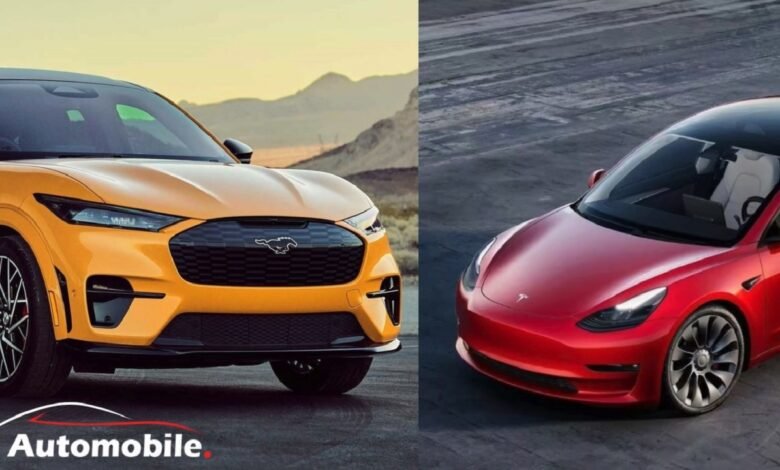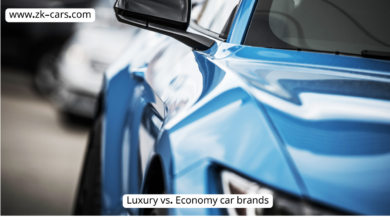Tesla vs. Everyone Else: Which Electric Car is Right for You?

The electric car market has exploded in recent years, with Tesla leading the charge. Numerous other automakers have joined the race, offering a wide range of electric vehicles (EVs) to choose from. This article will compare Tesla with its major competitors, exploring factors such as performance, range, features, price, and charging infrastructure, to help you decide which electric car is the best fit for your needs.
Tesla: The Electric Pioneer
Tesla, founded by Elon Musk, has been at the forefront of the EV revolution. Known for its cutting-edge technology, stylish designs, and impressive performance, Tesla has built a loyal following. Key advantages of Tesla vehicles include:
- Superior range: Tesla vehicles consistently offer some of the longest ranges in the industry.
- Over-the-air updates: Tesla vehicles receive regular software updates, adding new features and improving performance over time.
- Supercharger network: Tesla’s extensive Supercharger network provides fast charging options for long-distance travel.
- Autopilot: Tesla offers advanced driver-assistance features, including Autopilot, which enables semi-autonomous driving.
Key Tesla Models:
- Model S
- Model 3
- Model X
- Model Y
Tesla Competitors: A Growing Field
While Tesla has been a dominant force, many other automakers have entered the EV market with competitive offerings. Some of the major players include:
- Volkswagen: Volkswagen has invested heavily in electric vehicles and offers a range of models, including the ID.4 and ID.3.
- Ford: Ford has introduced the Mustang Mach-E, a popular electric SUV that combines performance with practicality.
- Hyundai and Kia: These South Korean automakers offer a variety of affordable EVs, such as the Hyundai Kona Electric and Kia Niro EV.
- Nissan: The Nissan Leaf has been a pioneer in the mass-market EV segment, offering a practical and affordable option.
Factors to Consider When Choosing an Electric Car
When comparing Tesla to other EVs, consider the following factors:
- Range: How far do you need to travel on a single charge?
- Charging infrastructure: Consider the availability of charging stations in your area.
- Features and technology: What features are important to you, such as advanced driver-assistance systems or a large touchscreen display?
- Price: Compare the starting prices and available incentives for different models.
- Brand loyalty: Do you have a preference for a particular automaker?
In-Depth Comparisons
To provide a more comprehensive comparison, let’s delve into some specific Tesla models and their key competitors:
Tesla Model 3 vs. Volkswagen ID.4
Both the Model 3 and ID.4 are popular mid-size SUVs in the electric vehicle market. Here’s a brief comparison:
| Feature | Tesla Model 3 | Volkswagen ID.4 |
|---|---|---|
| Range | Up to 358 miles | Up to 275 miles |
| Performance | 0-60 mph in 3.1 seconds | 0-60 mph in 5.4 seconds |
| Price | Starting at $46,990 | Starting at $37,495 |
| Charging network | Extensive Supercharger network | Access to public charging stations |
Tesla Model Y vs. Ford Mustang Mach-E
The Model Y and Mustang Mach-E are two high-performance electric SUVs. Here’s a comparison:
| Feature | Tesla Model Y | Ford Mustang Mach-E |
|---|---|---|
| Range | Up to 330 miles | Up to 305 miles |
| Performance | 0-60 mph in 3.5 seconds | 0-60 mph in 3.5 seconds |
| Price | Starting at $52,990 | Starting at $45,995 |
| Charging network | Extensive Supercharger network | Access to public charging stations |
Tesla Model S vs. Porsche Taycan
The Model S and Taycan are luxury electric sedans known for their performance and features. Here’s a comparison:
| Feature | Tesla Model S | Porsche Taycan |
|---|---|---|
| Range | Up to 405 miles | Up to 273 miles |
| Performance | 0-60 mph in 3.1 seconds | 0-60 mph in 2.6 seconds |
| Price | Starting at $84,990 | Starting at $83,050 |
| Charging network | Extensive Supercharger network | Access to public charging stations |
Charging Infrastructure and Accessibility
One of the key factors to consider when choosing an EV is the availability of charging infrastructure. Tesla’s Supercharger network provides fast charging options for long-distance travel, giving Tesla owners a significant advantage. However, other automakers are investing in expanding their charging networks and partnerships to improve accessibility for their customers.
Government Incentives and Tax Breaks
Many governments offer incentives and tax breaks to encourage the adoption of electric vehicles. These incentives can significantly reduce the upfront cost of an EV. Be sure to research the available incentives in your region before making a purchase.
Conclusion
The choice between Tesla and other electric vehicles ultimately depends on your individual needs and preferences. Tesla offers a comprehensive ecosystem with its Supercharger network and advanced features, while other automakers provide competitive options with their own strengths. By carefully considering factors such as range, performance, features, price, and charging infrastructure, you can find the electric car that best suits your lifestyle and driving habits.
Find Out
- Volkswagen ID.4: https://media.vw.com/models/id4
- Ford Mustang Mach-E: https://www.ford.com/suvs/mach-e/
- Hyundai Kona Electric: https://www.hyundaiusa.com/us/en/vehicles/kona-electric
- Kia Niro EV: https://www.kia.com/us/en/niro-ev
- Nissan Leaf: https://www.nissanusa.com/connect/features-apps/nissan-connect-ev.html
- Tesla Supercharger Network: https://www.tesla.com/supercharger




